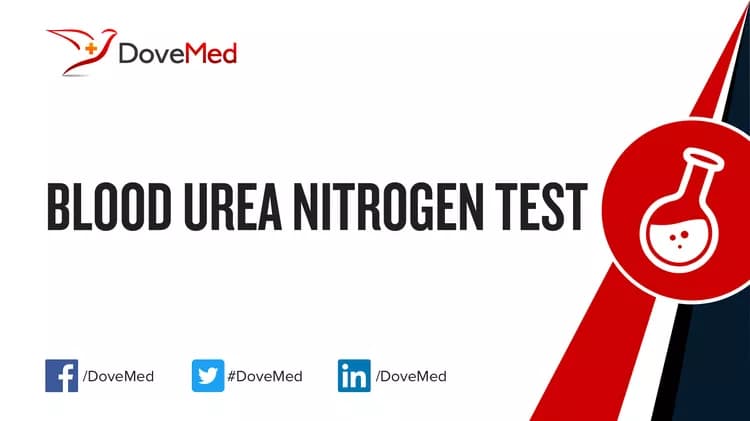What are the other Names for this Test? (Equivalent Terms)
- BUN Test
- Urea Test
- Urea Nitrogen Test
What is Blood Urea Nitrogen Test? (Background Information)
- A Blood Urea Nitrogen (BUN) test is performed to determine urea nitrogen levels in blood
- Urea nitrogen is formed when protein is broken down in the liver. The liver metabolizes protein into ammonia, which is then converted into urea. Urea is transported to the kidneys via the blood and excreted out of the body through urine
- Significantly increased BUN level can be toxic to the body
- BUN test therefore gives information on the breakdown of protein, or excretion of urea from the kidneys. This serves as one of the diagnostic tools, to the healthcare provider
What are the Clinical Indications for performing the Blood Urea Nitrogen Test?
The clinical indications for performing BUN test are:
- Individuals experiencing kidney problems
- In order to evaluate kidney function
- In those receiving hemodialysis or peritoneal dialysis, a BUN test can determine the effectiveness of the dialysis treatment
- As part of routine investigations, to determine the general health status
The healthcare provider may also order BUN test to help diagnose other conditions such as liver failure, gastrointestinal bleeding, urinary tract obstruction, and congestive heart failure. However, in such cases, additional tests would be required, prior to confirming any such diagnosis.
A BUN test result only confirms if there is an increased breakdown of protein, or a decreased excretion of urea.
How is the Specimen Collected for Blood Urea Nitrogen Test?
Sample required: Blood
Process: Insertion of needle into a vein (arm).
Preparation required: None; however, some medications may cause an increase or decrease of Blood Urea Nitrogen levels. The healthcare provider shall be kept informed about all current medications being taken by the individual, prior to the test being conducted
What is the Significance of the Blood Urea Nitrogen Test Result?
Normal BUN range is usually 8-24 milligram/deciliter for adult men and 6-21 milligram/deciliter for adult women. The levels may vary according to the age or different laboratories performing the test. The healthcare provider interprets the result considering all these factors.
Urea nitrogen levels are higher than normal in the following cases:
- Probable kidney malfunction or kidney failure
- Indication of high protein intake or inadequate fluid intake
- Poor blood circulation leading to less filtering of urea into urine (may be due to congestive heart failure, shock)
- Dehydration, burns, or fever
- Gastrointestinal bleeding
- Urinary tract obstruction
- Heart attack
Urea nitrogen levels are lower than normal in the following cases:
- Malnutrition
- Liver disease or liver damage; additional tests would be required, prior to confirming such a diagnosis
- Low protein diet
- Over-hydration
The laboratory test results are NOT to be interpreted as results of a "stand-alone" test. The test results have to be interpreted after correlating with suitable clinical findings and additional supplemental tests/information. Your healthcare providers will explain the meaning of your tests results, based on the overall clinical scenario.
Additional and Relevant Useful Information:
- Though Blood Urea Nitrogen levels are elevated during conditions such as liver disease and malnutrition, a BUN test is not used in the diagnosis or evaluation of these conditions
- A BUN test is frequently performed along with a Creatinine test (a test performed to understand kidney function)
Certain medications that you may be currently taking may influence the outcome of the test. Hence, it is important to inform your healthcare provider, the complete list of medications (including any herbal supplements) you are currently taking. This will help the healthcare provider interpret your test results more accurately and avoid unnecessary chances of a misdiagnosis.
Related Articles
Test Your Knowledge
Asked by users
Related Centers
Related Specialties
Related Physicians
Related Procedures
Related Resources
Join DoveHubs
and connect with fellow professionals


0 Comments
Please log in to post a comment.